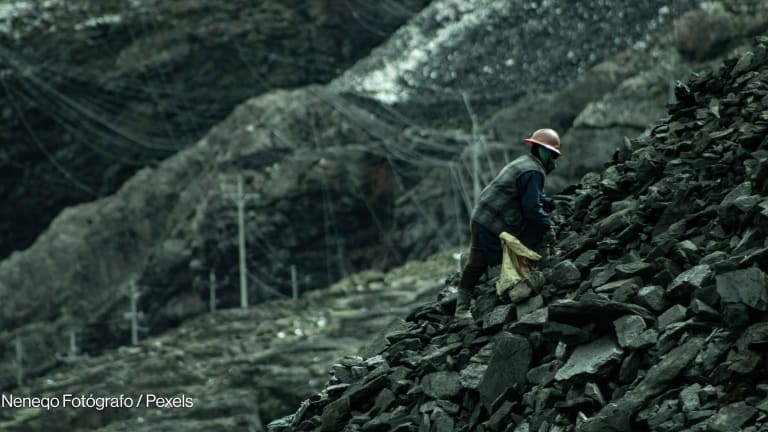
Peru captured world headlines last month after violent clashes in the Amazon region between indigenous protesters and security forces left at least 34 people dead. The violence has faded along with the headlines, but the underlying land rights and environmental issues remain unresolved and illustrate a fundamental question facing the developing world.
The question: At what cost should you pursue economic development?
The violence was sparked by executive decrees aimed at fast-tracking the concession of oil, gas and other natural resources in the Amazon region. Many indigenous groups viewed the decrees as an executive attempt to sidestep their rights to the land, and feared a continuation of rapidly expanding extraction concessions.
The Peruvian legislature revoked the decrees following the June violence.
Environmentalists have followed the issue closely, since the Amazon basin includes some of earth’s most biodiverse forests.
“I think we should all be concerned about what is happening with the native people in my country, because we must all participate in international efforts to avoid a world catastrophe from global warming,” exiled protest leader Alberto Pizango told the German Press Agency upon his arrival in Managua.
Chief amongst the demands of indigenous protesters is the right to be consulted about regional development.
Though numbering only about 300,000, groups indigenous to the Peruvian Amazon live in resource-rich locations, which are scattered throughout jungle areas that account for nearly two-thirds of Peru’s territory.
President Alan Garcia has contended the wealth of the Amazon belongs to the entire country, not a small minority.
A recent Duke University study showing that 64 oil and gas blocks cover 490,000 square kilometers - about 72 percent - of the Peruvian Amazon. All but eight of the blocks have been leased since 2003, and many overlap lands that were set aside for indigenous groups.
“The fundamental problem here is that the Peruvian government still has not managed to identify, as evidenced by this conflict, a way to ensure it’s giving indigenous peoples the right to prior and informed consent,” said Isabel Munilla, an associate at the World Resource Institute’s institutions and governance program.
At a minimum, the well-organized protests have caught the attention of lawmakers in Lima. But it remains to be seen how the protesters’ victory will impact future development in an area where a majority lives in poverty.
One thing is clear: This legislative victory will not put an end to oil and gas development in the region. Fossil fuel extraction is operated through a licensing process controlled by the Ministry of Energy and Mines. Revoking the decrees ends an executive attempt to streamline concessions, but it will not halt ongoing operations.
“For a long time, communities there have been dealing with oil development and it has not been a positive experience,” Munilla said. “They should be given the opportunity to understand how they can influence oil- and gas-sector development and participate. Even if some communities saw the benefit to oil and gas development, they were never given the opportunity to voice their opinions.”
A correlated concern for local communities is land titles. Many indigenous groups do not have proper titles to their land, often due to the slow bureaucratic process in Lima. At the same time, the government has fast-tracked oil and gas concessions overlapping the same property.
Critics speak of a double standard, and note that proper land titles could be a giant step forward for residents by creating legal outlets for indigenous residents, helping to ensure equity in the future concession of natural resources, and dissuading further conflicts.
Authorities in neighboring Ecuador, which faces many of the same issues as Peru, have put forth a resolution to leave sensitive jungle regions untapped and in the hands of local indigenous groups, while selling the equivalent carbon pollution credits on a global market.
“The challenge for the Peruvian government is how are you going to balance your drive for economic development versus the protection of human rights, and the need for environmental protection,” Munilla noted. “This is an unprecedented opportunity for the Peruvian government to put processes in place that accommodate the needs of a heterogeneous society.”








